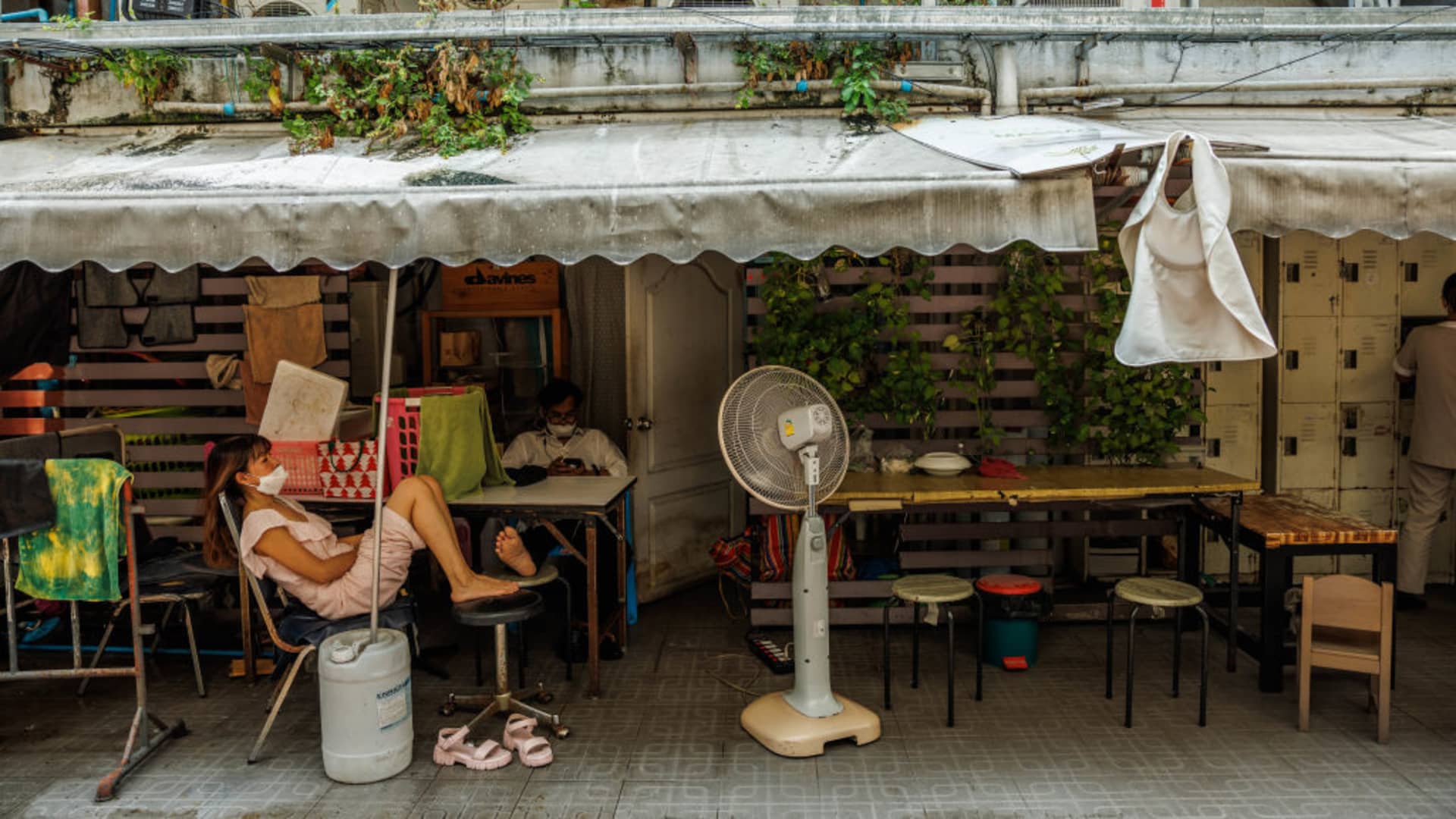Residents rest in front of a fan in Bangkok, April 25, 2023.
Andre Malerba | Bloomberg | Getty Images
Thailand’s economy grew at its slowest pace in almost a year in the third quarter, and analysts say the trend is here to stay.
Thailand’s gross domestic product grew 1.5% year-on-year for the quarter ending September, official data on Monday showed. That’s far below expectations of 2.4% by economists polled by Reuters, and lower than the 1.8% expansion in the second quarter.
The reading marked the second straight quarter of easing growth in Thailand’s economy.
“Public spending, inventories and goods exports dragged, despite firm private consumption and tourism,” said Chua Han Teng an economist at DBS Bank, warning that the room for public spending was narrowing amid populist policies.
After months of political deadlock and stock market volatility, Srettha Thavisin was elected Thailand’s prime minister in late September, amid expectations from economists that long-term economic recovery could prove challenging.
“The consecutive quarters of weak production-side GDP signal a Thai economy weaker than market sentiment suggests, notwithstanding the robust growth in consumption,” said analysts at Bank of America Global Research in a note.
“Anticipating a more pronounced impact from tightening monetary policies in the future,” they said.

The Bank of Thailand raised its key interest rate for an eighth consecutive time at its September policy meeting and said economic growth and inflationary pressures should pick up next year.
But analysts at Nomura expect a pause by the Thai central bank at its next meeting on Nov. 29 and through 2024.
“However, we continue to see a risk of rate cuts as early as Q2 2024,” Nomura said. “Importantly, the weak Q3 GDP outturn will likely intensify the government’s push for a large digital wallet handout, despite the uncertainty around the financing plan.”
A long pause or potential cuts in the BOT’s policy rate could also mean bad news for the Thai baht, which has shed 1.3% against the dollar so far this year and is headed for its fourth yearly decline.

